Introduction to BitAcross
Background
The innovation of new token standard on Bitcoin like BRC-20 tokens is a response to the evolving blockchain landscape, where the demand for broader functionality and diverse financial instruments is constantly growing. One key driver for this innovation is the concept of "fair launch," which emphasizes equitable and transparent distribution methods for new assets. Coupled with the use of inscriptions, which embed additional data within Bitcoin transactions, these assets offer enhanced capabilities and richer features compared to traditional Bitcoin transactions. This evolution reflects a significant shift in the Bitcoin ecosystem, moving towards more complex and versatile applications that cater to a wider range of financial and technological needs.
Problem Statement
Despite the innovation and potential of the new token standard, their integration into the wider blockchain ecosystem from Bitcoin faces significant challenges. Since Bitcoin is not turing complete, the movement and utility of these assets is limited, these new assets struggle with liquidity issues due to their limited exposure and accessibility outside the Bitcoin network. hindering their potential for broader market adoption and reducing their effectiveness as financial instruments. So that a cross-chain interoperability solution is needed.
Current cross-chain interactions face challenges in terms of availability, centralization, and security. Many token bridge projects have suffered from security breaches, leading to substantial financial losses, as seen in the Wormhole and Nomad incidents. A contemporary solution involves deploying smart contracts on both chains to verify ZKPs, enhancing security and trust.

In the above diagram,
-
cross-chain message requests are sent to a designated smart contract on the original chain, where assets are locked.
-
Relayers sign the transaction and create state transition proofs using zero-knowledge techniques.
-
These proofs are submitted to the smart contract on the destination chain.
-
The destination chain's smart contract validates the ZKP and the transaction, then mints the corresponding assets.
-
Relayers gather data from the destination chain, create receipts in the form of ZKP, and record them on the original chain.
However, Bitcoin's limitations in running smart contracts pose a unique challenge for verifying ZKPs. Current Bitcoin cross-chain solutions, including MultiBit, face significant challenges predominantly in terms of centralization risks and audit and compliance hurdles. Centralization risks stem from the reliance on intermediaries or custodial services, which can become single points of failure and targets for attacks, compromising the security and integrity of cross-chain transactions.

Proposed Solution: Enhancing Interoperability with BitAcross
BitAcross emerges as a groundbreaking solution to address the interoperability challenges faced by new Bitcoin-based assets like BRC-20 tokens. By enhancing cross-chain interactions, BitAcross aims to unlock the full potential of these assets, ensuring their accessibility and utility across various blockchain networks.
-
Zero-Knowledge Proofs (ZKP): The protocol employs Zero-Knowledge Proofs (ZKP) to authenticate actions on the origin chain in a verifiable and trustless manner. By processing ZKPs through smart contracts on the destination chain, actions like token minting can be securely executed.
-
Trusted Execution Environments (TEE): TEEs provide a secure platform for transaction execution, safeguarding sensitive information and ensuring that all transactions adhere to the predefined logic.
-
Independent Network: The BitAcross network, supporting EVM smart contracts, is a vital component that offers security, data availability, and public auditability, ensuring the integrity and reliability of cross-chain transactions. This network is Turing-complete and supports the Ethereum Virtual Machine (EVM), thereby overcoming Bitcoin's smart contract limitations and opening new avenues for blockchain interoperability and functionality.

Through these innovative technologies, BitAcross not only enables the smooth transfer of BRC-20 and other Bitcoin-based assets to different blockchain networks but also paves the way for the development of advanced decentralized applications and financial platforms. This protocol plays a crucial role in enhancing the interoperability and liquidity of new assets on the Bitcoin network, marking a significant advancement in the blockchain ecosystem.